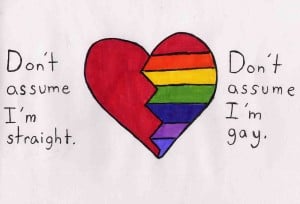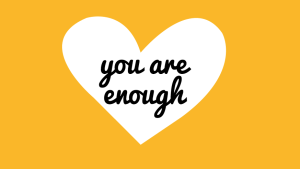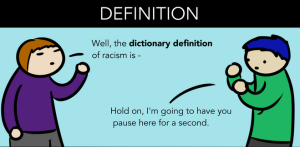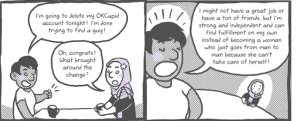
Source: Getty Images
In the not-so-distant past, I learned that someone I knew had sexually assaulted a former coworker of his. This man was not exactly a friend of mine, but had certainly been someone that I had trusted.
It was a blow to hear about the assault, but I knew immediately that it was true. And not even because of the fact that the vast majority of sexual assaults and rapes reported are true, but because on some level, it made sense. He had always walked along the line of what was acceptable behavior and what was not, and this time he had crossed that line.
I’ve been struggling with this post, and the issue in general, for a while now because I’m ashamed to say that, despite the nausea that overtakes me whenever his name is mentioned and the completely ruined happy memories, there’s still a part of me that feels hard-pressed to classify him as a bad person. Even though, by the definition of “bad person” that I live by, he is.
I’m disgusted and heartbroken. I refuse to excuse his behavior at all.
He made a choice, and it was the wrong one.
But this time, the perpetrator isn’t just a name in an article with no other backstory to me.
I know him.
I know him.
And that upsets me. Deeply and profoundly.
What do you do if someone you know assaults or rapes someone?
What do you do if it’s someone that you care about who is perpetrating these heinous acts?
And while hopefully you don’t have someone in your life who is a perpetrator, particularly since most assaults and rapes are committed by the same small percentage of people, it’s still an important question to ask. It’s an important situation to ponder.
Because I thought I knew that answer to that. I thought I knew how I would react.
But now I’m not sure.
I have two very instinctual, and unfortunately contradictory, reactions to learning of sexual assaults:
1) Take no prisoners. Whoever the assailant or rapist was, they committed a violent crime that is designed to oppress and silence. They deserve the consequences.
2) There has to be a way to save everyone. Extreme offenders aside, surely rehabilitation is possible. Therapy is wonderful and there has to be something worth redeeming in most people. At least, I like to believe so.
But these two extremes that are happening internally don’t necessarily have a place in many people’s realities.
Because the reality is: Most assaults aren’t reported.
And even the ones that are have a depressingly small chance of being resolved in the just manner that all of us wish for.
So, given the complications inherent in a situation like this, what are some concrete steps that you can take? What is a game plan that you can look toward in the awful case that this happens to you?
Safety
Make sure that everyone is safe – you and the survivor first and foremost. But in some instances, it may make sense for you to make sure the perpetrator is safe as well.
Whether or not you know the survivor is going to influence a lot of your decisions.
Do you need to call the police? Does the survivor not want to get entangled in the legal system? At some point this decision might be taken away from the survivor. Don’t be the person that does that.
If you don’t know the survivor, are you in danger from knowing about the assault?
Do you simply need to leave the location and go somewhere else?
Consider making a safety plan, either for you or passing along the information to the survivor.
Safety plans are most commonly used in domestic violence situations, but the idea of planning out what to do and who to call in an emergency is a good one no matter who you are.
For adults, the National Domestic Violence Hotline has some good tips on how to safety plan.
For younger folks, Loveisrespect.org has an interactive safety-planning tool that walks you through the recommended steps.
Support
Be affirming and supportive of the survivor if they come to you, but don’t take over.
This obviously depends on your knowing the survivor or someone else affected by the assault. This can be a mutual friend who is having trouble processing the assault and might even be how you know about the assault in the first place.
Empowerment comes from making your own decisions, so let the survivor make the best choices for them and their lives.
Use supportive language. Start with a statement like “I believe you.”
It may not seem like much, but starting with an affirmation makes a world of difference. It can begin the survivor’s process of reclaiming their power.
Ask what the survivor would like for you to do: listen, help with a particular task, or any type of longer term help.
Make sure that so long as you are comfortable with what is being asked, that you do it. If you are asked to listen, just listen.
Continue to remain affirming, and validate the feelings and experiences of the survivor.
Deal with the Perpetrator
There has been a lot of talk recently about outing misogyny and what the pros and cons are of that shaming tactic.
Ultimately, this has to be your call – to a point.
You can tell people – but only to the degree that the survivor is comfortable.
Or you can simply remove that person from your life and focus on supporting the survivor.
Delete them from your phone, block them on Facebook and Twitter, or don’t go to smaller events when you know the perpetrator will be there. Anything you feel like you have to do.
Remember, do not excuse or attempt to justify the perpetrator’s actions. I know this seems obvious, but depending on how well you know the perpetrator and how much you care about the perpetrator, you may have conflicting loyalties.
This is perfectly understandable and natural, but don’t let it get the better of you. Recognize your feelings and attempt to address them on your own time, but do not excuse these actions or fall into a victim-blaming trap.
Another course of action that might be available to you is talking to the perpetrator. Within the context of certain relationships, it is perfectly natural that you might want to sit down with the friend-of-yours-turned-perpetrator and let them know how you feel and the consequences of their choices.
Do not do this if you feel even the slightest hesitation. If you have any sense that you don’t know how the perpetrator will react or if you think it could place you in any danger, do not confront them about the assault.
Therapy
This can be about helping the survivor find an outlet. Or it can be for you, as a secondary survivor.
Or it can be for the perpetrator if you are feeling particularly benevolent.
Things to keep in mind when finding a therapist include:
1) Specialization. Do some research into what their focus is. There are therapists that focus on trauma.
2) Qualifications. Would you prefer to speak to a psychiatrist, a psychologist, or a counselor? Once again, do some research to figure out which of type of therapy would be best for you.
3) Are you in school? Many schools have therapists on staff or can make referrals to ones outside of the school.
4) Can you reach out to a national or local organization that deals with sexual violence? Often times these organizations have great resources for dealing with trauma.
5) Be aware of costs, whether or not you have insurance (let alone insurance that covers mental health). Do research about what is considered a standard price in your area. Figure out if there is any way you can get free or reduced-price counseling because of the trauma. Again, the organizations that work on sexual violence might be a good resource for this.
6) Finally, remember that you do not have to stay with the therapist you originally chose. If you meet with them and it doesn’t feel right, it probably isn’t.
Self Care
Make sure that you are emotionally stable and healthy. Don’t ever only take care of everyone else.
Self-care can involve anything from the therapy mentioned above to accepting that the assault wasn’t your fault, to walking away from the situation if and when that is appropriate for you.
Try to identify the specific emotions you are feeling. Do you feel the mixed loyalty that was mentioned previously? Are you feeling moments of guilt for not realizing the type of person the perpetrator was earlier? Are you angry? Helpless?
Figure out which emotions are the ones that you are comfortable feeling or dealing with and then begin by addressing them one at a time.
For instance, there is a lot about self-care here at Everyday Feminism. One of the articles that has been particularly helpful for me was How to Be Upset (In a Good Way).
For more generalized self-care, this article has some good tips to get started with.
RAINN (Rape, Abuse, and Incest National Network) has a wonderful tip-sheet for survivor self-care that can also be used by you, as a secondary survivor, or passed along to anyone else that may find it useful.
One of the main themes of this article that I am trying to convey is do what you need to do in order to take care of yourself.
If you need to walk away, then that is what you need to do, and no one can take that from you. If you are in a position to be supportive to the survivor or someone else affected by the attack, that’s okay too. But always remember to check in with yourself and see how you are doing.
Preparation
Eventually, you may even be able to get to a place where you know how you reacted at the time, and you can make a plan for how you want to react again if anything like this ever happens again.
It seems unlikely that this would happen to you more than once, of course, but for some people, being prepared is a form of therapy in-and-of-itself.
Did you jump to conclusions when you found out? Did you shut down? Where you outwardly angrier than you wanted to be?
It may sound silly, but practice saying affirming and empowering phrases, along the lines of the “I believe you” that we talked about previously.
This practice will give you a toolkit to work with and help prevent you from shutting down or saying the first thing that pops into your head.
Remember some of the things you learned when you went through this the first time. What worked? What didn’t? Write them down. It will be a concrete way of looking back if you are ever faced with this awful situation again.
Practice self-care in general.
The more centered you are in day-to-day life, the easier it will be for you to handle the harder stuff. Plus, you will have tools that are habit now to fall back on in tough situations.
—
Knowing or caring about someone who is a sexual predator is going to be a difficult position to be in for anyone.
It can cause any number of reactions and feelings that might be completely unexpected.
And it isn’t something that we are talking about.
Our society has a hard enough time supporting the immediate survivors of sexual assault and rape, and on the whole, there are a lot of people who might not recognize the secondary trauma for the people around the perpetrator and survivor.
These negative voices can be hard to block out, but hopefully now you have a few more tools to work with both to educate others and to help yourself through a healing process.
[do_widget id=”text-101″]
Julia Dieperink is a life-long feminist living, and sometimes working, in Washington, DC. She studied History; Women’s, Gender, and Sexuality Studies; and Women and Politics at American University. Currently, Julia is writing for the Where is Your Line? blog and is most active in the gender-based violence arena, both on and off the Internet. You can find her on Twitter at @jdieperink with a charming mix of activism and nerdy retweets.
Search our 3000+ articles!
Read our articles about:
Our online racial justice training
Used by hundreds of universities, non-profits, and businesses.
Click to learn more
Most Read Articles
- « Previous
- 1
- …
- 30
- 31
- 32



















